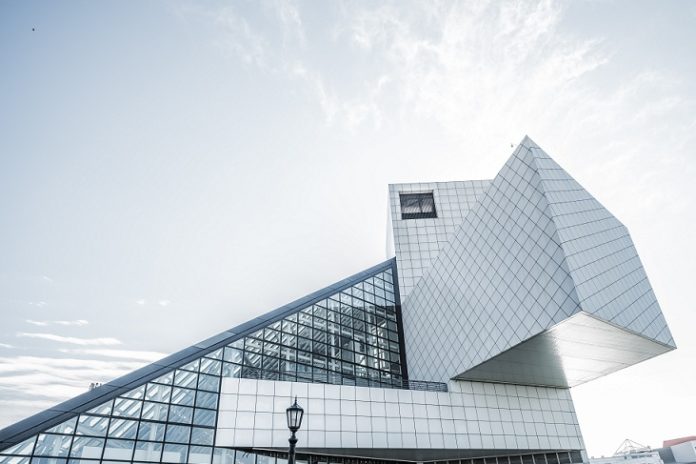April 27, 2020:” Sanofi and Regeneron Pharmaceuticals, Inc. announced the preliminary results from the Phase 2 portion of an ongoing Phase 2/3 trial evaluating Kevzara® (sarilumab), an interleukin-6 (IL-6) receptor antibody, in hospitalized patients with “severe” or “critical” respiratory illness caused by COVID-19.
Following a review by the Independent Data Monitoring Committee (IDMC) of all available Phase 2 and Phase 3 data, the trial will be immediately amended so that only “critical” patients continue to be enrolled to receive Kevzara 400 mg or placebo.
The randomized Phase 2 portion of the trial compared intravenously-administered Kevzara higher dose (400 mg), Kevzara lower dose (200 mg) and placebo.
It assessed 457 hospitalized patients, who were categorized at baseline as having either “severe” illness (28% of patients), “critical” illness (49% of patients) or “multi-system organ dysfunction” (MSOD) (23% of patients).
Patients were classified as “severe” if they required oxygen supplementation without mechanical or high-flow oxygenation; or “critical” if they required mechanical ventilation or high-flow oxygenation or required treatment in an intensive care unit.
Preliminary analysis of the Phase 2 portion of the trial demonstrated that Kevzara rapidly lowered C-reactive protein, a key marker of inflammation, meeting the primary endpoint (see table below).
Baseline levels of IL-6 were elevated across all treatment arms, with higher levels observed in “critical” patients compared to “severe” patients. Additionally, no new safety findings were observed with the use of Kevzara in COVID-19 patients.
Analysis of clinical outcomes in the Phase 2 trial was exploratory and pre-specified to focus on the “severe” and “critical” groups. In the preliminary Phase 2 analysis, Kevzara had no notable benefit on clinical outcomes when combining the “severe” and “critical” groups, versus placebo.
However, there were negative trends for most outcomes in the “severe” group, while there were positive trends for all outcomes in the “critical” group (see table below).
Subsequent to the IDMC review, Regeneron and Sanofi conducted a review of the discontinued “severe” group that revealed the negative trends in Phase 2 (n=126) were not reproduced in Phase 3 (n=276), and that clinical outcomes were balanced across all treatment arms.
Outcomes for the “severe” group were better than expected based on prior reports, regardless of treatment assignment: for example, in the Phase 2 portion, approximately 80% were discharged, 10% of patients died and 10% remain hospitalized.
“Even in a pandemic setting, it’s both crucial and possible to obtain controlled data in adequately-sized trials to provide the evidence needed to inform optimal medical care,” said George D. Yancopoulos, M.D., Ph.D., Regeneron Co-Founder, President and Chief Scientific Officer.
“Emerging evidence with Kevzara and other repurposed drugs in the COVID-19 crisis highlight the challenges of making decisions about existing medicines for new viral threats using small, uncontrolled studies.
We await results of the ongoing Phase 3 trial to learn more about COVID-19, and better understand whether some patients may benefit from Kevzara treatment.
In addition, there is an acute need for tailored approaches that specifically target this virus. To that end, Regeneron is rapidly advancing our targeted anti-SARS-CoV-2 antibody cocktail and we plan to initiate clinical trials in June.”
The Kevzara trial was designed after a small (n=21), single-arm study in China among mostly severe, febrile hospitalized COVID-19 patients, which found elevated IL-6 levels, and suggested that inhibiting this pathway with the IL-6 inhibitor tocilizumab rapidly reduced fever and improved oxygenation in severe patients, allowing for successful hospital discharge.
These uncontrolled findings require confirmation in adequately-sized and well-controlled trials.
Last month, Regeneron and Sanofi moved rapidly to evaluate Kevzara in a prospective, randomized, placebo-controlled adaptively-designed U.S. Phase 2/3 trial in collaboration with U.S. groups including the Biomedical Advanced Research and Development Authority (BARDA), part of the office of the Assistant Secretary for Preparedness and Response at the U.S. Department of Health and Human Services, the Food and Drug Administration (FDA), and hospitals across the country.
“At Sanofi, we are committed to helping combat the global COVID-19 pandemic. As we quickly follow the science to better understand this disease and explore how best to treat patients, these initial results from the randomized clinical trial setting provide physicians much-needed insights and information regarding Kevzara for patients with COVID-19,” said John Reed, M.D., Ph.D., Sanofi’s Global Head of Research and Development.
“While our evaluation of the use of Kevzara for COVID-19 treatment remains an investigational approach, Sanofi continues to stay at the forefront of multiple initiatives to fight this disease, including researching other potential treatment options, developing vaccine candidates that can be manufactured at large-scale, and potential collaboration for an innovative SARS-CoV-2 smartphone-based self-testing solution.”
The Phase 2 numerical results are presented in the table, including exploratory clinical endpoints for the “critical” group, which is the focus of the ongoing Phase 3 trial.
The ongoing portion of the Phase 3 trial, which is continuing to enroll, currently includes more than 600 patients in the “critical” group. Regeneron and Sanofi remain blinded to the ongoing portion of the Phase 3 trial and expect to report results by June.
In addition, the companies are also conducting a second trial in countries outside of the U.S. The Phase 3 trial of Kevzara in approximately 400 patients hospitalized with COVID-19 infection is currently enrolling in Italy, Spain, Germany, France, Canada, Russia, Israel and Japan. Initial results from this second trial are expected in the third quarter. The findings from the U.S. trial will be shared immediately with the IDMC and similar amendments to the trial outside the U.S. will be considered.
The U.S. Kevzara trial has been funded in part with Federal funds from the Department of Health and Human Services; Office of the Assistant Secretary for Preparedness and Response; and BARDA, under OT number: HHSO100201700020C.
The use of Kevzara to treat the symptoms of COVID-19 is investigational and has not been fully evaluated by any regulatory authority.”
https://www.sanofi.com/en/media-room/press-releases/2020/2020-04-27-12-58-00
For more News: Sanofi: First patient outside U.S. treated in global Kevzara® (sarilumab) clinical trial program for patients with severe COVID-19


